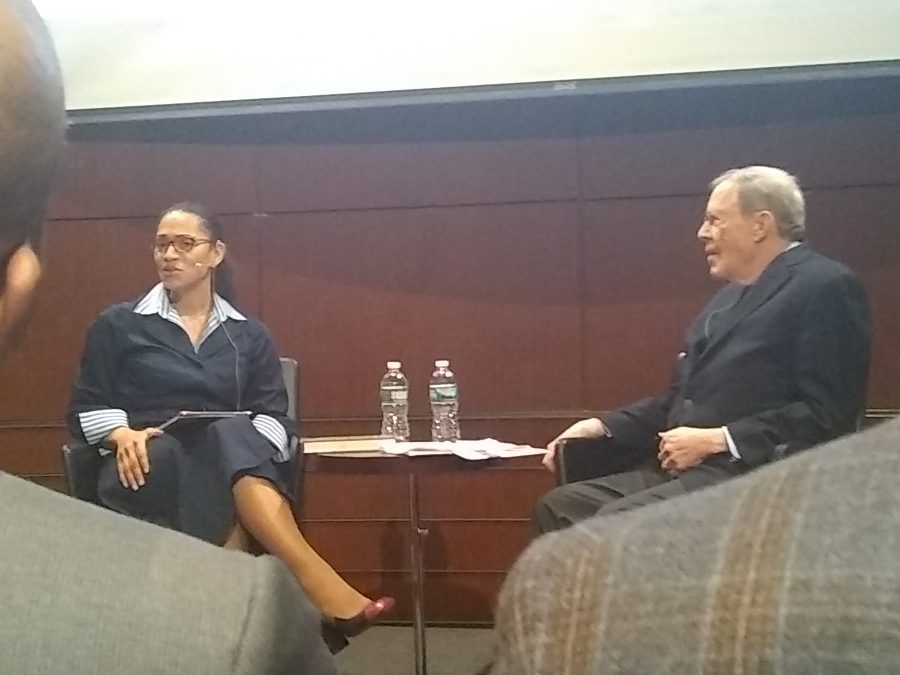The large number of people who remain incarcerated after being unable to pay bail and the police practice of fining citizens for minuscule acts were two of the issues discussed at a talk at NYU Silver Center Hemmerdinger Hall on Thursday. The talk was hosted by the McSilver Institute for Poverty Policy and Research and highlighted the intersection of race, poverty and criminalization.
Georgetown University’s Carmack Waterhouse Professor of Law and Public Policy Peter Edelman spoke with poverty relief advocate Jennifer Jones Austin about the criminalization of poverty and how it is connected to mass incarceration. According to Edelman, there are 10 million people in America who currently owe $50 million to the government due to excessive fines.
“After the death of Michael Brown, the [U.S.] Department of Justice went to Ferguson to examine additional concerns,” Edelman said. “In St. Louis County, they discovered police officers arrested their own citizens and gave them expensive fines for actions. When they could not pay, they were thrown in jail.”
As another example, Professor Edelman mentioned a Georgia resident named Abel Edwards. Edwards received $600 a month from Social Security Disability checks and was asked to pay a fine he could not afford.
“He has a serious mental disability, in which he cannot write or read,” Edelman said. “He was arrested for not having a permit to burn the leaves in his backyard and received a $528 fine for probation. He was asked to pay $250 at the time he was charged, and since he did not have it, he went to jail.”
Jones Austin shifted the conversation to a new topic that hits close to home for many New Yorkers: cash bail. According to The New York Times, around 33,000 criminal defendants in 2017 could not afford to post bail in New York after their initial hearing. She proceeded to ask Edelman about how citizens should act and what an alternative to the bail system would be.
Before providing an answer, Edelman provided a background of how many people are incarcerated, simply for not affording fines.
“There are 700,000 people on any given day who are jailed in the country, 20,000 of which are jailed in New York State,” Edelman said. “450,000 people currently in jail are not guilty of anything. The main reason they sit in jail is because they have been held for bail and they can’t pay. In order to get out, they have to say they are guilty when they are not.”
When asked, Edelman gave a vague answer to the audience on how citizens can make an impact on cash bail.
“The ACLU is deeply knowledgeable about this, and it’s very easy to know the guidelines online,” Edelman said. “You have to know what the issues are, and continue to fight for them as best as you can.”
Carmen Paulino, another event attendee, said that even though she enjoyed it, she felt many of the solutions Edelman presented were idealistic.
“This talk definitely shed a light on this issue and the fact that it exists, but I found myself leaving the event without any practical method of solving this problem,” Paulino said.
Email Alexandria Johnson at [email protected].

























































































































































